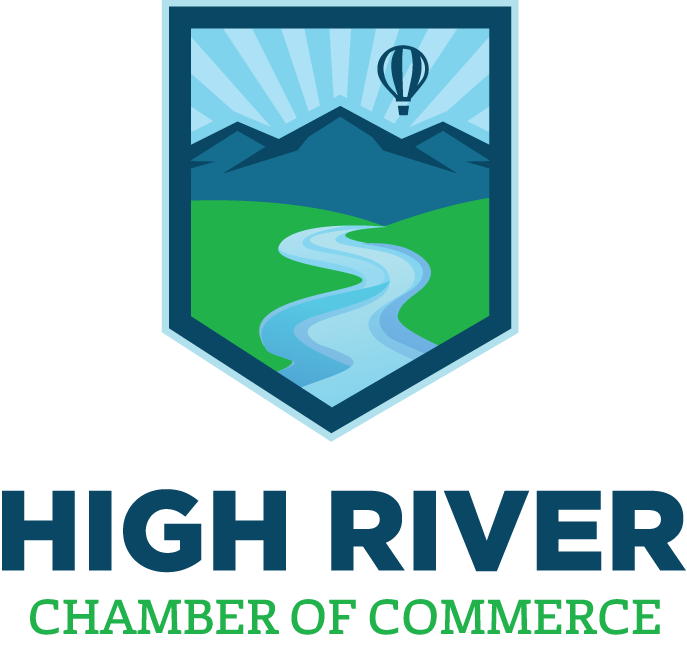2025 Candidate Q’s: Candisse McCormick
Thank you High River residents for taking the time to ask our 2025 Municipal Election Candidates the many questions before and at the All-Candidates Forum.
While we couldn’t get all the questions answered in person, we did go through the questions, remove the redundancy and have the Most Asked questions below that our candidates were invited to answer AFTER the forum.
Read on to learn more about your candidates and the issues that have been top of mind for our engaged citizens.
Visit the website: http://candisseoncouncil.com/
What does advocacy mean to you and how best do/will you practice this attribute of leadership?
To me, advocacy means being a true voice for the people you represent. It’s not about pushing my own agenda—it’s about listening to residents, understanding their concerns, and then carrying those voices into the council chambers. Advocacy is the bridge between what our community is saying and the action that council can take.
I will practice advocacy by being present and accessible—whether that’s answering questions directly, meeting over coffee, or responding to emails and messages. I’ll show up to listen first, then use my position to ask the right questions, challenge where needed, and support decisions that reflect what the people of High River actually want. Advocacy, in my view, is about showing up consistently, speaking up respectfully, and standing up when it matters most.
What is your position on water conservation?
When it comes to water conservation, I’ll be honest—I was alarmed to learn that the Town is facing a provincial mandate to upgrade our wastewater treatment facility, with an estimated cost of around $40 million. What surprised me most is that this level of critical infrastructure doesn’t appear to have been financially planned for in a proactive way.
For me, that raises questions about long-term budgeting, priorities, and transparency. Why hasn’t this type of major renewal already been built into financial planning? Where is the money currently going, and how do we make sure we’re not caught off guard again with projects of this size?
My approach would be to bring those tough questions forward, ensure residents are kept informed, and push for a more proactive approach to financial planning. We need to start planning now—not just reacting when mandates or emergencies hit. Water is too important a resource, and infrastructure too vital to our community, to leave until the last minute.
A lot of the candidates talk about local economy specifically; how do you plan to grow the economy? And how do you plan to encourage sustainable growth?
When it comes to the local economy, I believe it’s important to be clear about where council’s role begins and ends. Business owners know their industries best, and many don’t want the town involved in how they run their operations. I agree — it’s not council’s job to “meddle” in the day-to-day of business.
Where council does play a critical role is in making sure the foundation is strong: reliable infrastructure, good roadways and sidewalks, strong telecommunication services, and adequate parking. These are the things that make it easier for businesses to operate, attract customers, and succeed.
We also need to look at how we balance tax distribution in town. Larger franchises and box stores can sometimes be part of the solution, helping to share the tax burden and generate additional revenue that benefits the entire community. This isn’t about replacing small businesses — it’s about building a healthy balance where both local entrepreneurs and larger players can thrive side by side.
That’s what sustainable economic growth looks like to me: building the conditions for business to flourish, supporting the services residents need, and making sure the financial load is fairly shared across the board.
How do you plan on responding to the growing needs of the youth demographics (ages 10 to 16) of High River to help retain or bring them back when they become adults?
I think our town has done a great job in providing supports and amenities that benefit our seniors, and that’s important. But now we need to make a shift in focus toward our youth. If we want them to see High River as a place to stay or return to, we need to start building for them today.
That means looking at our recreational infrastructure — whether it’s building new complexes that meet the needs of sporting groups, or upgrading and repairing the facilities we already have. It also means encouraging businesses to offer services and spaces that appeal to this age group, while creating opportunities for them to get involved in the local economy through summer jobs and after-school employment.
I also believe council should work closely with schools, clubs, and community groups to hear directly from youth and those who serve them. We need to understand their needs now and plan for the next wave of young people who will be coming up behind them. If we invest in our youth today, we’re investing in the long-term vibrancy and sustainability of High River.
With an aging population and increase in disabled persons in our town, what steps do you propose to ensure a meaningful life for all residents?
Aging and disability touch almost every family in our community, and I live that reality every day. To me, ensuring a meaningful life for all residents means creating a town where people of all abilities and ages can fully participate without barriers.
That begins with accessibility: making sure sidewalks, curb cuts, crosswalks, public buildings, and recreation facilities are truly barrier-free. It also means using universal design principles in our planning so accessibility isn’t an afterthought but built in from the start.
The Town’s role isn’t to run every program itself, but to provide the foundation that allows meaningful opportunities to exist. That means investing in accessible infrastructure, supporting affordable and accessible housing, and partnering with service providers, schools, and community groups who can deliver inclusive programs.
When we create those conditions, residents — whether seniors, people with disabilities, or families — can find connection, independence, and dignity right here in High River.
What does urban sustainability mean to you?
I’ll be honest — I don’t consider myself an expert in urban sustainability. What I do know is that it has to be more than a buzzword. It has to be practical, realistic, and supported by our community.
Right now, we don’t have town-run curbside recycling in High River. Residents either take items to the recycling facility themselves or hire community groups like FAIM or companies like Range Recycling to manage it. That tells me two things: first, we need to look at whether our current facility is accessible, effective, and large enough to meet the needs of our growing population. Second, before we add new programs, we need to ask: will people actually use them?
For example, public education and rebate programs could help encourage things like rain barrels, water-wise landscaping, or energy-efficient fixtures. Adding a compost or organics stream alongside recycling could also be a positive step that people understand and see the value in. But these ideas only make sense if residents are willing to use them consistently — otherwise they become an expensive initiative with little impact.
For me, urban sustainability in High River means listening to residents first, then making sure the Town provides the infrastructure, partnerships, and incentives that people will truly take advantage of.


